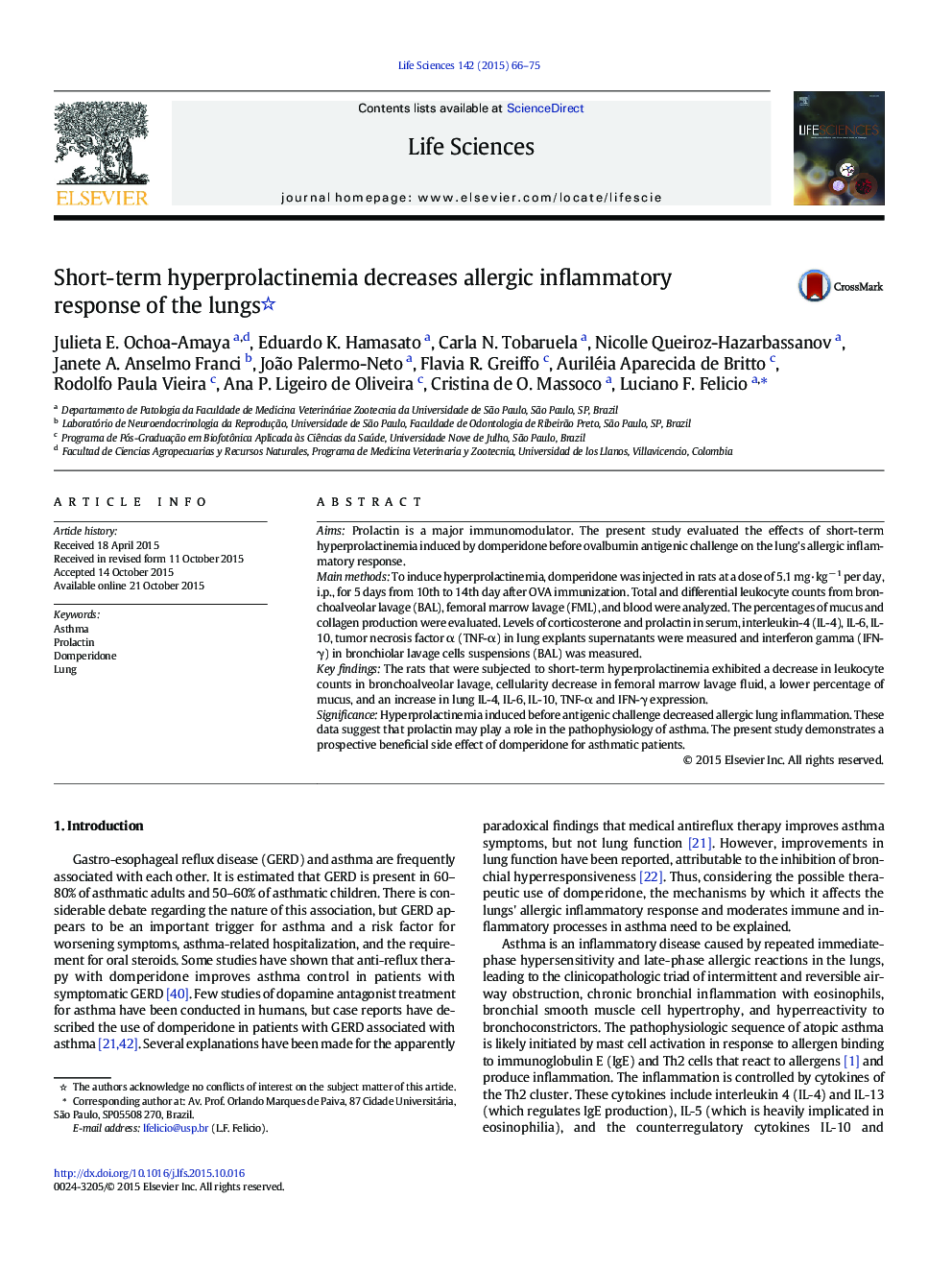| Article ID | Journal | Published Year | Pages | File Type |
|---|---|---|---|---|
| 2550779 | Life Sciences | 2015 | 10 Pages |
AimsProlactin is a major immunomodulator. The present study evaluated the effects of short-term hyperprolactinemia induced by domperidone before ovalbumin antigenic challenge on the lung's allergic inflammatory response.Main methodsTo induce hyperprolactinemia, domperidone was injected in rats at a dose of 5.1 mg·kg− 1 per day, i.p., for 5 days from 10th to 14th day after OVA immunization. Total and differential leukocyte counts from bronchoalveolar lavage (BAL), femoral marrow lavage (FML), and blood were analyzed. The percentages of mucus and collagen production were evaluated. Levels of corticosterone and prolactin in serum, interleukin-4 (IL-4), IL-6, IL-10, tumor necrosis factor α (TNF-α) in lung explants supernatants were measured and interferon gamma (IFN-γ) in bronchiolar lavage cells suspensions (BAL) was measured.Key findingsThe rats that were subjected to short-term hyperprolactinemia exhibited a decrease in leukocyte counts in bronchoalveolar lavage, cellularity decrease in femoral marrow lavage fluid, a lower percentage of mucus, and an increase in lung IL-4, IL-6, IL-10, TNF-α and IFN-γ expression.SignificanceHyperprolactinemia induced before antigenic challenge decreased allergic lung inflammation. These data suggest that prolactin may play a role in the pathophysiology of asthma. The present study demonstrates a prospective beneficial side effect of domperidone for asthmatic patients.
